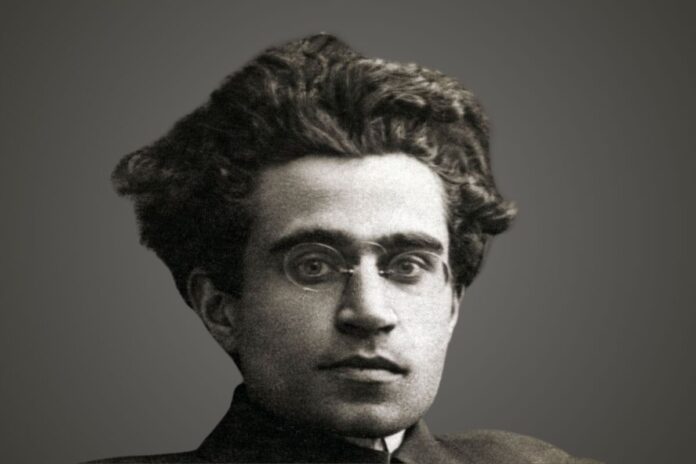Antonio Francesco Gramsci (22 January 1891 – 27 April 1937) was an influential Italian Marxist philosopher, linguist, journalist, writer, and politician. A founding member and former leader of the Italian Communist Party, Gramsci is best known for his theories on cultural hegemony, which explore how the ruling capitalist class (the bourgeoisie) uses cultural institutions to maintain control over society, rather than relying solely on force or economic power.
Introduction:
Antonio Gramsci is a name that resonates deeply within the world of political theory and philosophy. Known for his work on power, culture, and ideology, Gramsci’s theories have shaped the way we think about society and politics. His exploration of the concept of hegemony and the role of intellectuals in shaping public consciousness continues to influence scholars, activists, and policymakers today. But who was Antonio Gramsci, and why does his work matter? Let’s delve into the life and lasting impact of one of the most profound thinkers of the 20th century.
The Legacy of Antonio Gramsci
Gramsci’s most significant work was written during his imprisonment, after being arrested in 1926 by Benito Mussolini’s fascist regime. He spent much of his time in prison writing over 30 notebooks and approximately 3,000 pages of analysis, which were later compiled into the Prison Notebooks. These writings covered a broad range of topics, including political theory, sociology, linguistics, history, and the critique of fascism. Gramsci synthesized ideas from a variety of sources, such as Marxism, the thought of Machiavelli, and the work of thinkers like Georges Sorel and Benedetto Croce.
Gramsci’s theory of cultural hegemony argues that the ruling class uses ideological means—such as cultural and educational institutions—to secure their dominance, rather than relying on direct coercion. He believed that the bourgeoisie maintains control by shaping the common sense and values of society to reflect its own interests, effectively making its dominance seem natural or inevitable.
Gramsci’s writings also include reflections on Italian nationalism, historical materialism, the role of civil society and religion, and the relationship between high culture and popular culture. He is often categorized as a neo-Marxist, as his views diverged from traditional economic determinism, placing greater emphasis on the role of ideology and culture in sustaining power structures.
Though criticized by some for his intellectual elitism and his reconciliation of Marxism with intellectualism, Gramsci remains a foundational figure in the development of 20th-century political theory.
Early Life and Political Activism
A Life Shaped by Struggle
Antonio Gramsci was born on January 22, 1891, in Ales, Sardinia, Italy, into a family of modest means. Despite facing early hardships, including poor health and financial struggles, Gramsci excelled academically. His interest in Marxist philosophy and social issues began during his university years.
Gramsci’s political journey truly began in the 1920s when he became involved in Italy’s socialist and communist movements. He co-founded the Ordine Nuovo journal and became a prominent leader of the Italian Communist Party (PCI). His commitment to challenging fascist ideology and advocating for the working class led to his imprisonment by Mussolini’s regime in 1926.
Key Ideas and Theories: Gramsci’s Political Philosophy
The Concept of Hegemony
Gramsci’s most influential theory is that of hegemony. In simple terms, hegemony refers to the cultural, social, and ideological dominance of one group over others. Unlike traditional notions of power, which focus on coercion or military force, Gramsci emphasized the role of ideas in maintaining control. He argued that the ruling class maintains its power not just through force but by gaining the consent of the masses, often through cultural institutions like the media, education, and religion.
Intellectuals and the Role of Education
For Gramsci, intellectuals played a critical role in shaping society’s values and beliefs. In his famous Prison Notebooks, he explored the idea that intellectuals aren’t just academic figures but also everyday individuals who help perpetuate or challenge the dominant ideology. Gramsci divided intellectuals into two categories: traditional intellectuals, who serve the interests of the status quo, and organic intellectuals, who emerge from social movements and help articulate the struggles of the oppressed.
Education, according to Gramsci, was a vital mechanism through which hegemony is maintained. He believed that the education system should not merely indoctrinate students but also encourage critical thinking and awareness of social inequalities.
The War of Position vs. War of Maneuver
Gramsci also introduced the concepts of war of position and war of maneuver to explain the struggle for power. The war of maneuver is the direct confrontation—such as a revolutionary uprising—while the war of position refers to the long-term process of building alliances, shaping public opinion, and creating institutions that challenge the status quo. Gramsci believed that in the modern world, a war of position was more effective than a sudden revolution.
The Impact of Gramsci’s Thought
Gramsci’s Influence on Political Movements
Antonio Gramsci’s ideas have had a profound influence on various political movements worldwide. His theory of hegemony has been particularly influential among left-wing intellectuals and activists. Movements seeking social justice, decolonization, and liberation often draw on his ideas to understand how power operates beyond the formal political system.
Gramsci’s focus on the importance of culture and ideology has led to the development of cultural studies as an academic field. Scholars in this discipline analyze how media, popular culture, and education shape social norms and maintain power structures.
Relevance in Modern Times
Though Gramsci died in 1937 after spending years in prison, his ideas remain relevant today. In an era of global capitalism, political polarization, and social movements, Gramsci’s work continues to inspire those who seek to understand how power dynamics shape society. His call for a revolution of ideas and cultural transformation resonates in contemporary discussions about class, race, gender, and identity.
Frequently Asked Questions (FAQ)
Who was Antonio Gramsci?
Antonio Gramsci was an Italian Marxist philosopher, writer, and political theorist, known for his ideas on culture, power, and ideology. He is most famous for his theory of hegemony and his analysis of the role intellectuals play in society.
What is the theory of hegemony?
Hegemony, according to Gramsci, is the dominance of one group over others, not through force, but through the control of cultural and ideological institutions. This allows the ruling class to maintain its power by gaining the consent of the masses.
Why is Antonio Gramsci important today?
Gramsci’s work remains relevant as it provides valuable insights into how power functions in modern societies. His theories about culture, education, and intellectuals continue to shape political movements, especially those advocating for social change and justice.
Final Thoughts: The Lasting Influence of Gramsci’s Work
Antonio Gramsci’s contributions to political theory have left an indelible mark on the world. His exploration of power, culture, and ideology has influenced generations of thinkers, activists, and politicians. Through his ideas on hegemony, intellectuals, and the importance of education, Gramsci taught us that societal change is not just about political revolutions—it’s about reshaping the culture and ideas that underpin our social systems. As we navigate the complexities of the 21st century, Gramsci’s work continues to guide us in our understanding of power, resistance, and transformation.




